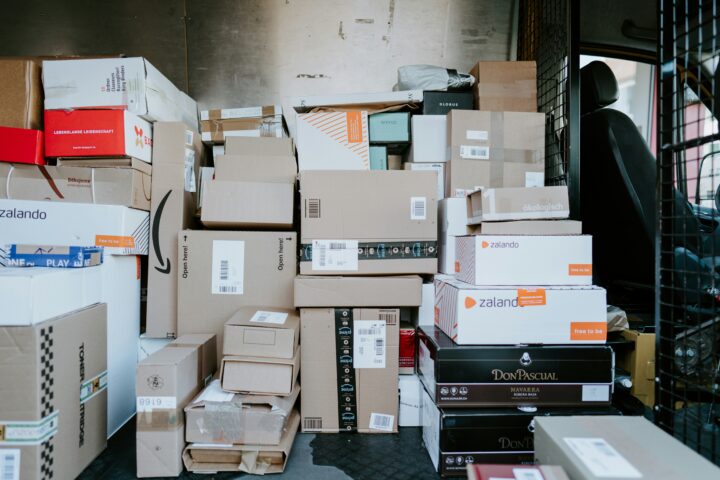
As many companies moved to remote work during the pandemic we learned how to make work from home environments and routines more efficient.
COVID-19 turned the world upside down and gave businesses a hard time throughout 2020. While we’re seeing the world gradually open up, the repercussions of the worldwide pandemic are here to stay.
One of the most notable paradigm changes we witnessed as the new normal set in was the shift toward remote work. With so many health and safety restrictions in place, offices quickly became untenable. The vast majority of white-collar jobs were moved to a remote office. What’s more, companies started recruiting only for remote positions.
Landing a remote job in this climate is still not easy, though. In fact, competition for good positions is fiercer than ever. Still, if you persevere and know how to write a good CV, you should have no trouble getting there. But how do you handle remote work once you’re happily occupying the position?
Over a year of trials and tribulations has taught us many lessons about remote work. Here are the most important of them all.
You Need a Separate Workspace
Setting up a dedicated working space that acts as your “remote office” is one of the crucial steps for success as a remote worker. Doing this helps establish essential work-life boundaries. True, some people may not have the opportunity to dedicate a separate room that’s only to be used for work. However, experience shows that this is a very good practice.
You want to avoid work bleeding into your personal life. Failing to do so can quickly result in burnout – and that’s a scenario you want to avoid at all costs. Having a separate space dedicated only to your work, where your work is contained, will help you with that.
Setting Time Boundaries is Essential
Not taking your work home with you is easier to do when you work at an office. Many employees had been struggling with doing that in a remote environment. Having your home be your office only exacerbates the issue, which in turn results in record levels of burnout and depression.
This state of development is precisely what you need to avoid at all costs. To do so, set a strict schedule and keep to it. Don’t let working time bleed into your personal time just because your office is your home. Don’t let leisure time invade your working time just because your home is your office.
Keep those two things separated, and mercilessly enforce the boundaries you’ve set for them.
Gearing up With the Right Tools is Crucial
Using communication, collaboration, and task management software is the key to making a remote office work. Utilizing cloud-based services is essential for unlocking your full remote potential.
Naturally, every company’s needs are different, which means every business needs to choose which IT tools to put in place. Some companies prefer using their own infrastructure, while others rely on SaaS solutions to get things done. Some businesses like using separate collaboration and timekeeping tools. Others prefer to use an all-in-one BPM solution.
Taking the time to do some research and pick the right IT tools for you is essential for productivity and success in a remote environment.
Don’t Neglect Making Time for Yourself
It’s easy to get carried away and miss all your breaks while working remotely. At the office, there are probably people around to prompt you to go to lunch or take a water-cooler break. This isn’t the case when you’re working remotely – but that doesn’t mean you should neglect to carve a bit of time for yourself.
Taking a breather once in a while is crucial, both from a productivity and from a mental health standpoint. Having a moment to clear your head allows you to continue your work with renewed vigor. What’s more, it is a good way to avoid the mounting stress of working in solitude for a long time.
Try to Avoid the News
Deliberately avoiding information may seem like a counterproductive practice in our current information age. True, when compared to other bits of practical advice it sticks out like a sore thumb.
However, consider this – the news media is dominated by bad news. Logging off from your stressful and isolated remote job, only to be exposed to an endless torrent of negativity is bad for your mental health.
Extra anxiety and stress is the last thing you need in such a situation, which means that avoiding the news may well be for the best. Focusing on things that uplift, inspire and motivate you is a much better self-care strategy. Instead of looking for ill tidings, take a refreshing walk, or spend some time on your favorite hobby.
Minimizing Multitasking is Good for You
There are hundreds of articles online about multitasking, and how it’s the best thing since sliced bread. Here’s the thing – it isn’t. There are much better strategies you can use to boost your productivity.
Companies tend to value and reward an employee’s ability to juggle tasks highly. Still, the fact remains that an employee’s brain can only hold one conscious thought at a time. Trying to cram more than one in there usually results in stress, frustration, and failure.
Sure, some mundane tasks can be done without conscious effort, and those can be combined with others. Driving and discussing something on the phone is a good example of that. It’s not recommended, but it can be done.
However, most tasks that require focus or decision-making don’t yield themselves to multitasking at all. Your brain will just keep switching between all the tasks you need to do. It will and get more and more distracted and confused, increasing your chance of failure.
So, save yourself the stress and the frustration. Don’t try to multitask. Take things one at a time and separate your activities. Focus on them and give them your all, instead of trying to juggle them. The temptation to do everything at once is much stronger when working remotely – resist it, and save yourself the stress.
Avoiding Distractions is Crucial
Disconnecting from work is hard when there’s always something demanding their attention. New emails, communications, reports, chat messages, news, and updates pop up with alarming regularity.
Those distractions are lessened to an extent in an office setting but can become a real nuisance when working remotely. They can easily ruin a remote worker’s concentration and rhythm if allowed to run rampant. Therefore, they need to be controlled and minimized, for the benefit of a remote employee’s mental health and productivity.
Networking with Fellow Remote Workers Is A Good Idea
There are many good practices remote employees should strive to adopt – and networking with fellow remote workers is one of them. Doing this is essential for cultivating a pleasant and productive work environment.
Only communicating via text messages is bad form. It does very little to alleviate the feelings of loneliness and alienation that tend to plague remote workers.
Naturally, the occasional conference call or digital hangout can’t completely solve the problem. Still, it’s a step in the right direction.



